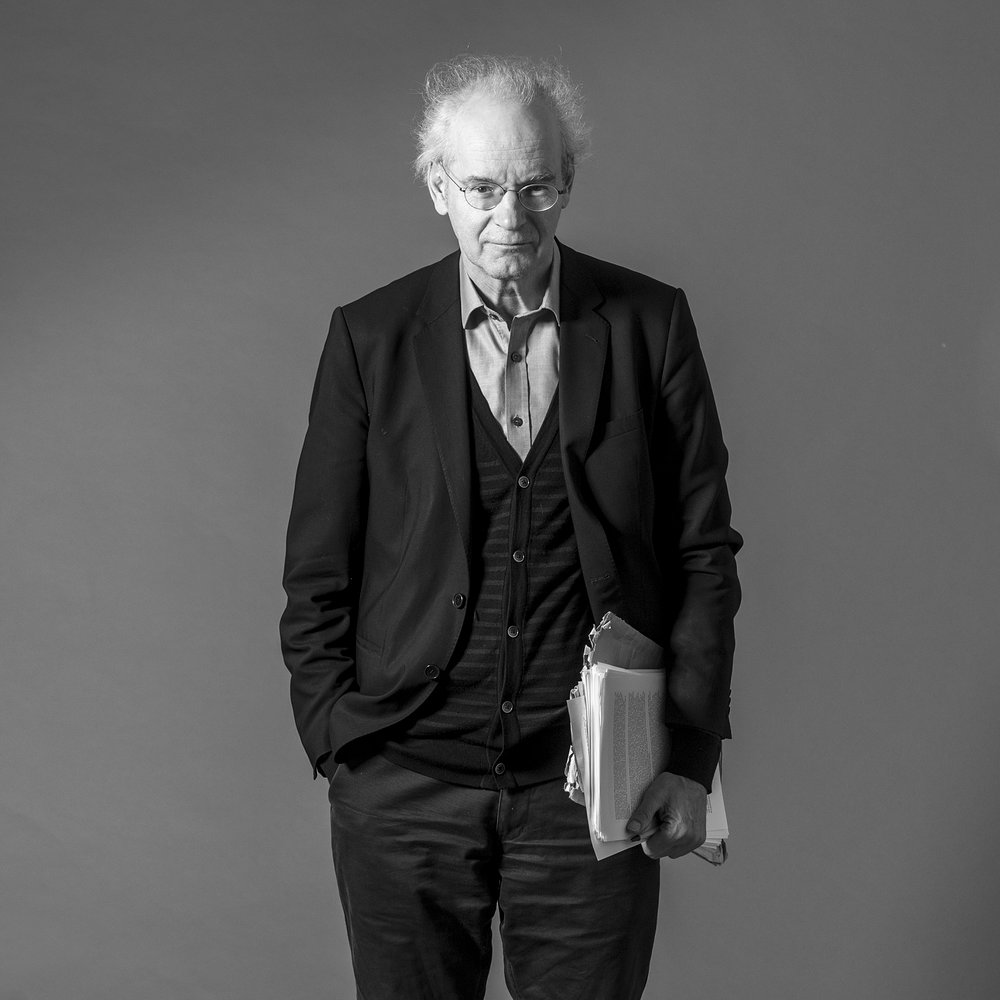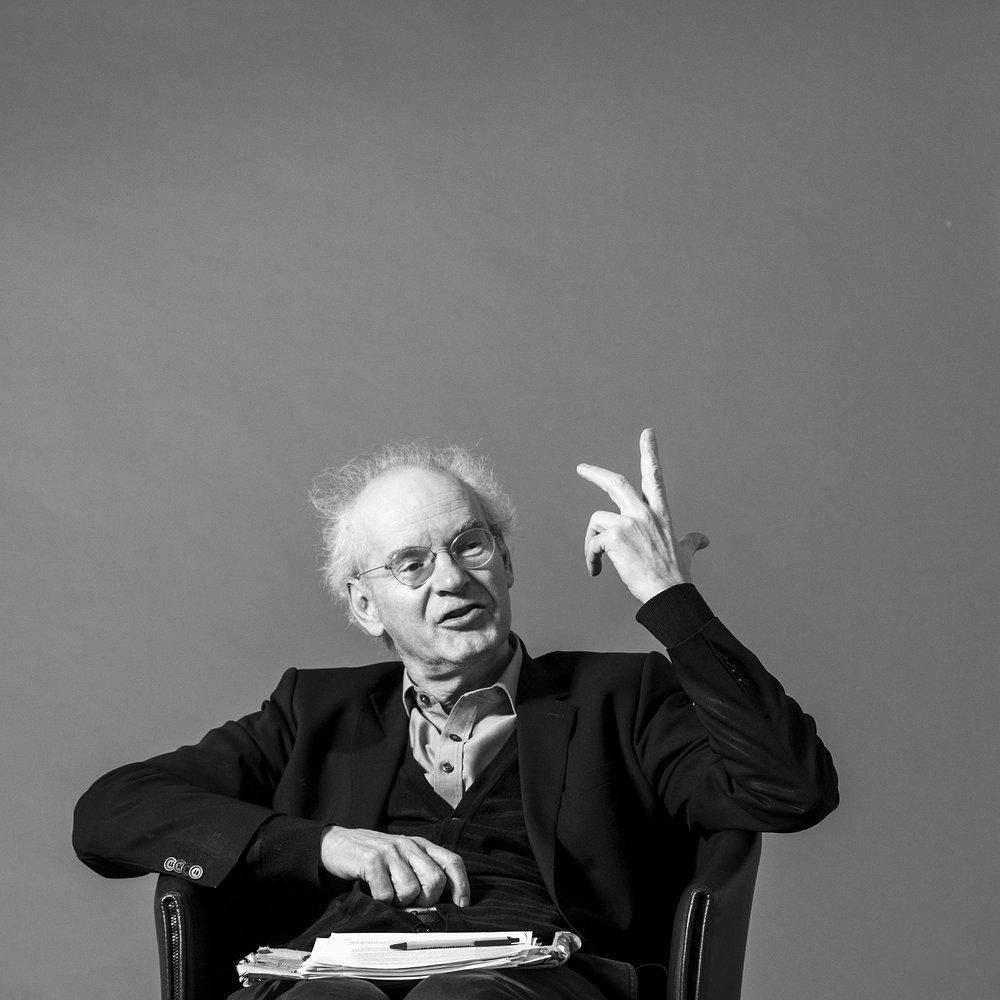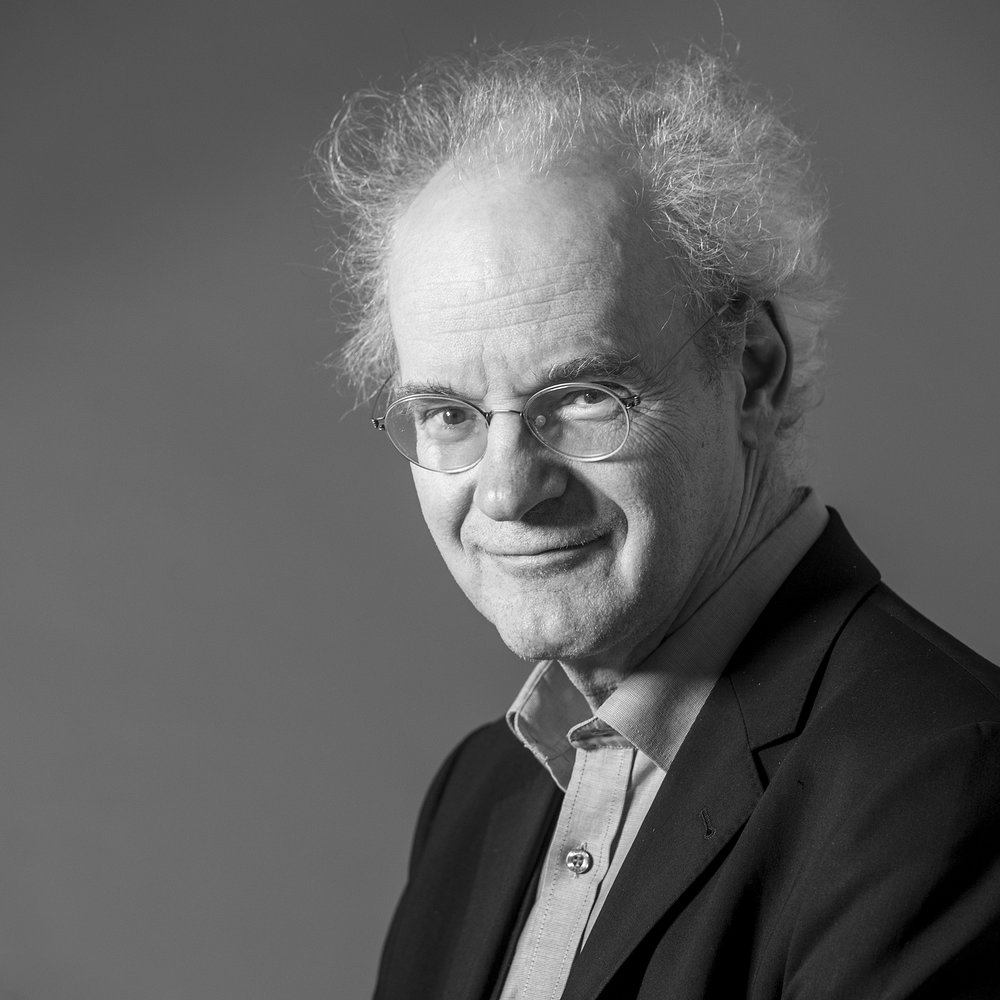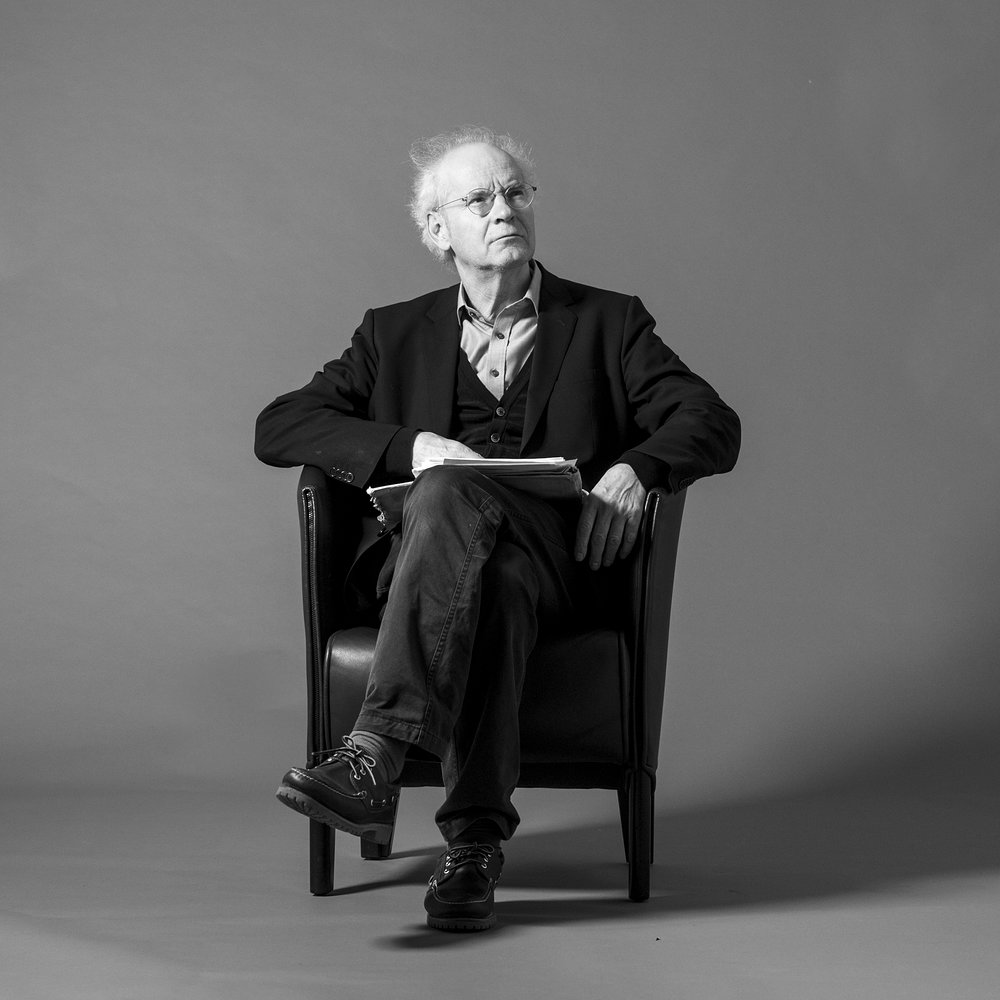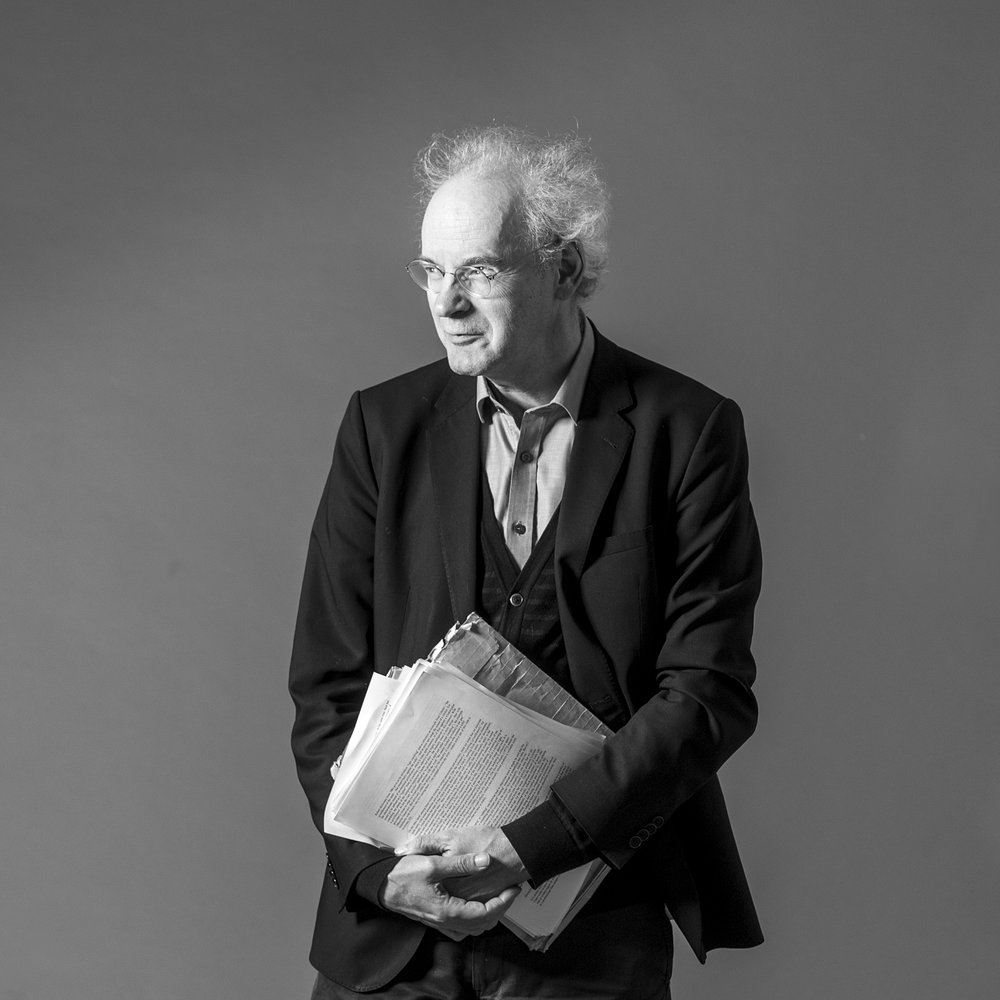Issue 10 / May 2015
All Ears (and Eyes)
by Ina Hartwig
Michel Chion studies the relationship between image, voice and sound in cinema from its beginnings to our present day. He is an impassioned listener, interpreter of films, theoretician, diagnostician of contemporary times. And he doesn’t hold back in his polemical broadsides against famous colleagues.
A quirk, a talent, a gift of the Frenchman is his ability to link the gestures of the Enlightenment with that of poetry. Michel Chion perfectly masters this mixture. For decades he has researched sounds, tones and noises in relation to their environment – “acoulogie,” the science of “sound objects,” which he continues in the tradition of his teacher the late Pierre Schaeffer. Yes that’s right – sounds are “objects” and the point is to “describe” them. Whosoever sojourns in Michel Chion’s world will be fascinated by his passionate precision of perception. You stagger from one epiphany to the next.
It is certainly no coincidence that Michel Chion alludes to Rousseau when he transforms the latter’s “promeneur solitaire” (“solitary wayfarer”) into a “listening wayfarer.” Rousseau was the most musical of French philosophers after all. It is under the beautiful title Le Promeneur écoutant that Michel Chion’s essays on everyday noises are subsumed. To his ears they sound not at all profane. The catchword “urban symphony” is mentioned and thus the first question posed on this bright February day at the Wissenschaftskolleg: How does Berlin sound?
One might suppose that a researcher of sound, who normally lives in the belly of Paris, would be able to report on acoustic differences. But no! Michel Chion insists that Berlin has “no special sound”; it is “a myth” that each and every city spawns its own acoustic pattern even if it’s true that a town’s architecture – the broad streets, the narrow lanes, the tall or small houses – naturally impacts its acoustics. All this notwithstanding, urban sounds are changing. For instance suitcases on wheels and the ubiquitous drone of contemporary mobile-phone addiction have produced “new noises” and these on a global scale. The listening promenader mischievously adds: “And laws make sounds – just take the prohibition against smoking.” The claques of smokers who flee outside with their cigarettes can always be discerned through their own kind of idiosyncratic jabbering.
Here we touch upon a crucial issue in his work – how to designate and describe the sounds, noises, din, racket, etcetera? Another book of his, Le Son (1998), is a fundamental work that impresses through its systematic approach. The author asserts that the French word son cannot be properly translated. Hence one of his long-term projects is a collection of those words and concepts that designate sound – “Le livre des sons.” Michel Chion reads not only French but Italian, German, English, Latin and classical Greek, so his “semantic and historical work” encompasses precisely these six languages. That lovely German word Rauschen (“murmur”) has naturally made its way into his collection – and not to forget Schnattern (“cackle”). Eight hundred pages of such words have already been assembled.
But Chion’s ten months at the Wissenschaftskolleg will be spent delving into another of his many passions, namely the history of cinema. His endeavor here is a confident reinterpretation and recalibration of the relationship between image, sound and voice. This comprehensive research project is entitled: “Chronologie du cinéma verbal et sonore de 1895 à nos jours: pour une nouvelle périodisation du cinéma ‘audio-logo-visuel.’” It is important to know that even if Michel Chion, scion of a family of engineers (both his father and brother), professes loyalty to this tradition, he has personally chosen another and perhaps more interesting path.
Michel Chion was born in 1947 in Creil – an industrial town in northern France that was seemingly stuck in the nineteenth century – and he studied at conservatories in Versailles and Paris. Composition soon became his passion. His musical works, among them Requiem (1973), are compassed by the term “musique concrète,” a school which completely freed itself from musical notation – the “concrete” recording is the work. These compositions “yielded no income”; and he didn’t care to enter into the compromise of film music. Just as he was stewing over how he might finally earn some money, Pierre Schaeffer suggested that he apply to a film school and teach son (if one were to attempt a translation: “sound”). A momentous proposal! It was the late 1970s and as of the 1980s, when video cassettes came on the market, it became possible to systematically study motion pictures. Previously you had to keep going to the movie theater – you couldn’t rewind or fast-forward or stop the film. So his research began. But it was still a long way from being Michel Chion’s ticket to the university.
From 1980 to 1986 he was even an editor and a critic for the legendary Cahiers du Cinéma where Truffaut and Godard had also worked (they are not among his favorites). It was the zenith of film criticism, and Michel Chion thinks back to that time with enthusiasm – if only for the many films that one was able to view gratis, as it were, at the Cannes festival. “C’était génial” he says. There still exist a number of his short films from that period as well as a very long one entitled Messe de terre; this “video liturgy,” as director Chion terms it, lasts two and a half hours and is available on DVD. You might say that Chion the critic also carries on, and he has a blog at <link http: www.michelchion.com external-link-new-window of michel>www.michelchion.com which uniquely combines film criticism and “listening perambulation.”
It is interesting that even if Chion professes to view the opus of a certain director as a coherent whole, he still feels free to tease out individual films from the context of that opus, in his capacity as cinephile, and popular films are no exception. But this afternoon we still have not reached the point of him listing his favorite films. Our room with the bay window in this Wilhelminian-style villa exudes the feel of an austere study. Michel Chion, whom one imagines to be a fulfilled individual, now loosens up and his French accelerates to a speed that makes one’s head spin. His German visitor politely asks if he might curb the tempo while privately fretting that his zeal for the topic will then likewise be curbed – but this latter fear proves unfounded.
In the context of Pierre Schaeffer’s work, for whom Chion served as assistant, it was not only a matter of making sounds palpable as objects but of describing their tonal qualities independent of whether they were music or not. The problem these days is not that we are inundated with impressions through a wealth of sounds (courtesy of media, video games) but that people “can no longer describe” sounds and emotions. As a teacher, Chion makes recourse to literature, in particular novels, which are fit vehicles for “reviving old feelings.” A wonderful example is Marcel Proust’s Recherche. It is in Le Son that Chion analyzes the little bell (“le grelot”) at the entrance door to Aunt Léonie’s house in Combray. Through its various timbres – e.g. spirited or halting – it announces who is entering. The doorbell thus describes a familial, interior sound space; this in contrast to a public sound space – the ringing of the village’s churchtower bell (“la cloche”).
In films on the other hand you have the frame (cadre), which is not to be confused with the screen (écran), an important difference. It is absolutely crucial whether the sound comes from inside or “outside” the frame – for instance the voice of the (dead) mother in Hitchcock’s Psycho. The voice of the absent mother/mother-in-law is a characteristic of Hitchcock films. The feminine perspective is very pronounced with Hitchcock because he was wont to consult with his wife Alma Reville. For instance The Birds is a phantasmagorical expression of the mother-in-law’s aggression, representing her “omnipotence” and “archaic terror.”
Michel Chion is of the firm conviction that sound and image are not to be directly correlated – as Gilles Deleuze asserts in his film books. Deleuze is one of those noted individuals who is the target of Chion’s polemic. He explains that “son et image” - sound and image - are hardly a natural pairing but “always a surprise.” Even Jacques Derrida’s philosophy of the voice cannot withstand Chion’s incisive critique – it is nonsense to contend that the voice signifies a positive experience of presence; to the contrary, insists Chion, only media professionals can occasionally hear their own voice with narcissistic pleasure. The rest of us find our voices – for example hearing your recorded voice on tape – as something rather unpleasant.
His own grandparents, born around 1880, experienced the advent of cinema, says Michel Chion, who is fascinated by this “century of recording technology” when the gramophone, the telephone and cinema were all more or less invented simultaneously. It is striking to see how Chion gives a somewhat French spin to a German media theory that can tend toward the technocratic – and conspicuous with him is a lovely seriousness in regarding emotions as having value in and of themselves; in other words, conjoined with media but not completely subject to them. Michel Chion’s work is permeated by a searching sensuality devoted to detail. It is not without reason that he regards Maurice Merleau-Ponty’s Phenomenology of Perception as having been unjustly forgotten.
Yes, this tension would seem essential for a researcher who is simultaneously an artist, musician, composer and filmmaker, namely the tension between humanity and technology. Michel Chion is a creative engineer – all eyes, all ears. He wants to make a short film about the bungalow which he presently occupies here in the Grunewald with his wife Anne-Marie Marsaguet – the former coach house of a Wilhelminian villa. He is magically drawn to spaces. He also understands the voice in the sense of Jacques Lacan (who always had a tough time of it in Germany) as “object ‘a’.” Chion’s psychoanalytical schooling is readily discernible. Along with Lacan, to whom he remains loyal, it was the great child psychoanalyst Françoise Dolto who inspired him both personally and intellectually. And he can also draw on personal experience with analysis.
He remembers a rather difficult childhood. His parents were a quarrelsome couple and their divorce – in those days guilt was ascribed to one of the parties and duly litigated – was a catastrophe for both Michel and his brother. Those oppressive years spent in boarding school were mostly employed in reading. He has long since been able to detach himself from that time and amusingly regales with a nightmare he once had in which he and his mother were immured in an empty movie theater. They are sitting in the same row but at complete opposite ends. Slowly the mother rises and moves toward him. The closer she comes the more she takes on the appearance of a dead woman. “A clear variation on Hitchcock!” exclaims Michel Chion joyously as outside the evening descends upon the wintry garden.
And his favorite films? Oh yes, here they are:
Blade Runner (Ridley Scott, 1982)
Kiss me deadly (Robert Aldrich, 1955)
Playtime (Jacques Tati, 1967)
L’homme de Rio (Philippe de Broca, 1964)
Casanova (Federico Fellini, 1976)
2001 - A Space Odyssey (Stanley Kubrick, 1968)
North by Northwest (Alfred Hitchcock, 1958)
West Side Story (Robert Wise, Jerome Robbins, 1961)
Sen to Chihiro no kamikakushi (Hayao Miyazaki, 2001)
Tree of Life (Terrence Malick, 2011)
This list of course makes no pretense to completeness.
More on: Michel Chion
Images: © Maurice Weiss
